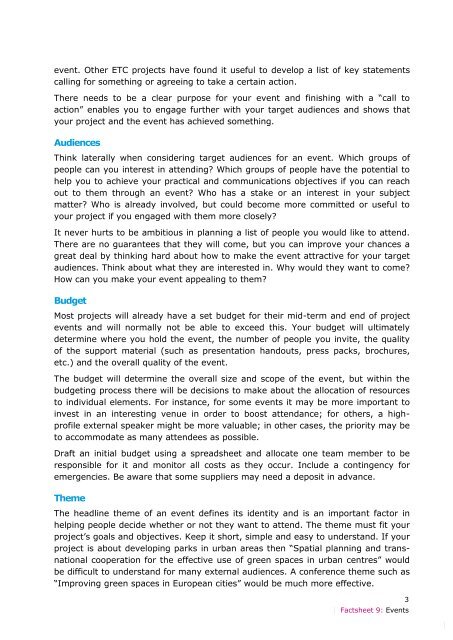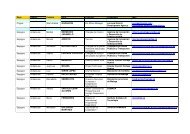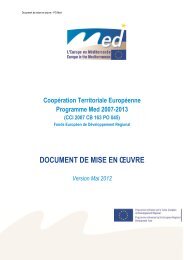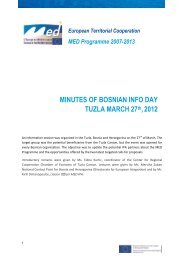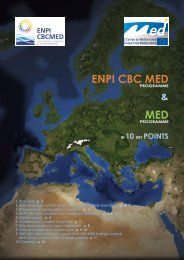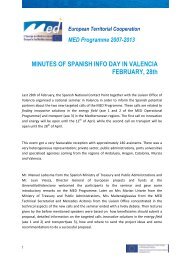MED Communication Handbook - Programme Med
MED Communication Handbook - Programme Med
MED Communication Handbook - Programme Med
Create successful ePaper yourself
Turn your PDF publications into a flip-book with our unique Google optimized e-Paper software.
event. Other ETC projects have found it useful to develop a list of key statements<br />
calling for something or agreeing to take a certain action.<br />
There needs to be a clear purpose for your event and finishing with a “call to<br />
action” enables you to engage further with your target audiences and shows that<br />
your project and the event has achieved something.<br />
Audiences<br />
Think laterally when considering target audiences for an event. Which groups of<br />
people can you interest in attending? Which groups of people have the potential to<br />
help you to achieve your practical and communications objectives if you can reach<br />
out to them through an event? Who has a stake or an interest in your subject<br />
matter? Who is already involved, but could become more committed or useful to<br />
your project if you engaged with them more closely?<br />
It never hurts to be ambitious in planning a list of people you would like to attend.<br />
There are no guarantees that they will come, but you can improve your chances a<br />
great deal by thinking hard about how to make the event attractive for your target<br />
audiences. Think about what they are interested in. Why would they want to come?<br />
How can you make your event appealing to them?<br />
Budget<br />
Most projects will already have a set budget for their mid-term and end of project<br />
events and will normally not be able to exceed this. Your budget will ultimately<br />
determine where you hold the event, the number of people you invite, the quality<br />
of the support material (such as presentation handouts, press packs, brochures,<br />
etc.) and the overall quality of the event.<br />
The budget will determine the overall size and scope of the event, but within the<br />
budgeting process there will be decisions to make about the allocation of resources<br />
to individual elements. For instance, for some events it may be more important to<br />
invest in an interesting venue in order to boost attendance; for others, a highprofile<br />
external speaker might be more valuable; in other cases, the priority may be<br />
to accommodate as many attendees as possible.<br />
Draft an initial budget using a spreadsheet and allocate one team member to be<br />
responsible for it and monitor all costs as they occur. Include a contingency for<br />
emergencies. Be aware that some suppliers may need a deposit in advance.<br />
Theme<br />
The headline theme of an event defines its identity and is an important factor in<br />
helping people decide whether or not they want to attend. The theme must fit your<br />
project’s goals and objectives. Keep it short, simple and easy to understand. If your<br />
project is about developing parks in urban areas then “Spatial planning and transnational<br />
cooperation for the effective use of green spaces in urban centres” would<br />
be difficult to understand for many external audiences. A conference theme such as<br />
“Improving green spaces in European cities” would be much more effective.<br />
3<br />
� Factsheet 9: Events<br />
�


